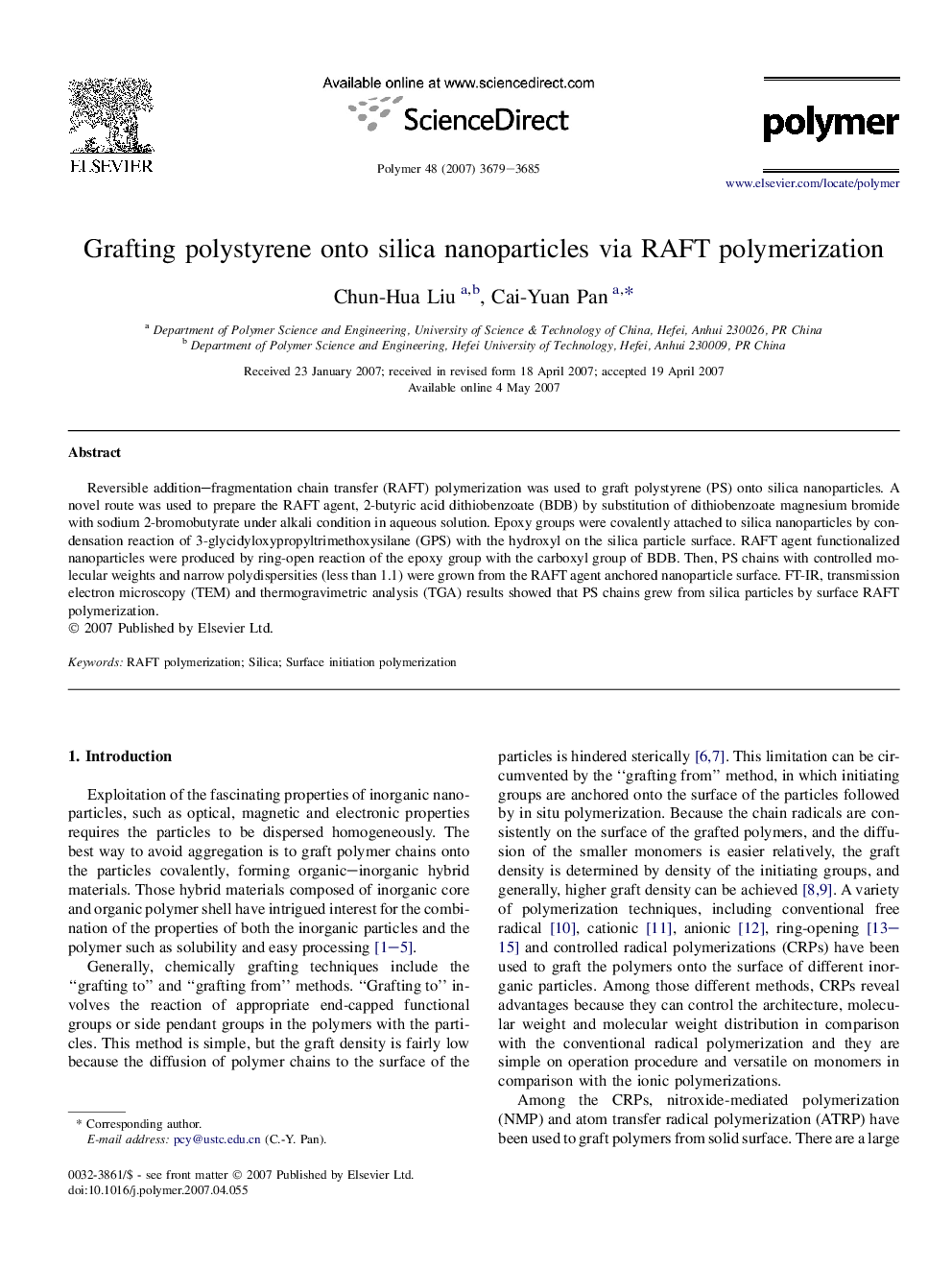| Article ID | Journal | Published Year | Pages | File Type |
|---|---|---|---|---|
| 5185935 | Polymer | 2007 | 7 Pages |
Reversible addition-fragmentation chain transfer (RAFT) polymerization was used to graft polystyrene (PS) onto silica nanoparticles. A novel route was used to prepare the RAFT agent, 2-butyric acid dithiobenzoate (BDB) by substitution of dithiobenzoate magnesium bromide with sodium 2-bromobutyrate under alkali condition in aqueous solution. Epoxy groups were covalently attached to silica nanoparticles by condensation reaction of 3-glycidyloxypropyltrimethoxysilane (GPS) with the hydroxyl on the silica particle surface. RAFT agent functionalized nanoparticles were produced by ring-open reaction of the epoxy group with the carboxyl group of BDB. Then, PS chains with controlled molecular weights and narrow polydispersities (less than 1.1) were grown from the RAFT agent anchored nanoparticle surface. FT-IR, transmission electron microscopy (TEM) and thermogravimetric analysis (TGA) results showed that PS chains grew from silica particles by surface RAFT polymerization.
